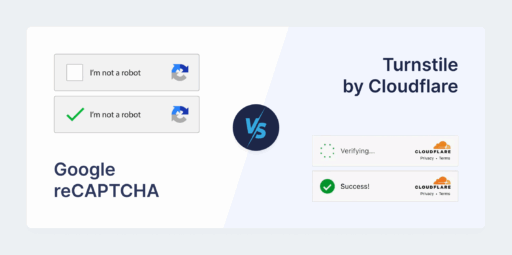With Australian cyber security threats looming larger than ever, safeguarding your website isn’t just a good idea— it’s critical.
Why?
While your website may look like a digital storefront to your customers, in reality, it’s so much more than that. It’s a treasure trove of data, a beacon of trust for your visitors, and a cornerstone of your online reputation.
With so much at stake, it’s important to keep and protect everything you’ve worked so hard for.
Regardless of what you do and where you work, cyber security and WordPress security are paramount.
In this post, I’m going to talk you through eight key ways to secure your WordPress website.
Let’s explore why digital security matters and list some actionable steps you can take to protect your WordPress website.
For personalised WordPress support to secure your website, get in touch with our team at SGD.
First, Why Bother Securing Your WordPress Website?
This is a valid question and an important one to address before we dive into my security-boosting action steps.
So, why should you invest in protecting your WordPress website? Do you really need to?
The truth is that WordPress security and updates aren’t just about preventing a cybersecurity breach, they’re also important for your website’s performance and user experience.
Let’s look at what happens when you don’t invest in WordPress website security:
Malware Infections
Hackers target vulnerable WordPress websites by injecting malicious code or malware.
This can result in your site being used for distributing malware, phishing attacks, or spam.
Global hacking data collated by Web Tribunal tells us:
- WordPress faces around 90,000 attacks per minute due to its widespread popularity.
- Weak passwords contribute to nearly 8% of WordPress website hacks.
- Failure to update WordPress regularly leaves websites highly vulnerable, with almost 61% of attacked sites found to be outdated.
- Outdated plugins account for 52% of WordPress vulnerabilities.
- Nearly 42% of WordPress sites harbour at least one vulnerable component.
Data Breaches
If your website contains sensitive user data (such as personal information or payment details), a security breach can lead to the exposure of this data, resulting in identity theft, financial loss, or legal consequences.
If you’re collecting user data, you have a responsibility to your users to ensure solid security.
SEO Damage
Hackers might deface your website, insert spammy content, or create malicious redirects, which can harm your site’s search engine rankings and reputation.
Plus, staying up to date with recommended WordPress maintenance is important for your SEO performance. If your website is lacking important functional or visual features, you’ll potentially lose rankings and customers.
Downtime
Security breaches can lead to your website being taken offline by your hosting provider or flagged by search engines as unsafe. This downtime can result in loss of revenue, traffic, and credibility.
And what will your visitors do when your website doesn’t work? They’ll simply find what they’re looking for on one of your competitor’s sites.
Loss of Trust
A compromised website can damage your brand’s reputation and damage the trust of your visitors and customers. This can have long-lasting effects on your business and is completely avoidable when you take the right steps to protect your WordPress website.
All of these items can seem overwhelming or scary, but don’t be alarmed. You can avoid these issues by taking steps to protect your WordPress website.

Tips to Enhance WordPress Security
The first step is knowing the importance of WordPress security, and the second is enforcing actionable strategies to help defend against possible cyber threats. I recommend using the following to ensure your WordPress website is secured:
1. Secure Cloud Web Hosting
When it comes to hosting your WordPress website, opting for secure cloud web hosting solutions is crucial. At SGD, we prioritise security and speed by using Google Cloud Servers based in Australia.
We also recommend reputable hosting providers such as Flywheel, WP Engine, and Kinsta. These platforms offer advanced security features and robust infrastructure to protect your website while performing well.
2. Cloudflare DNS Hosting
Enhance your website’s security and reliability by using Cloudflare for DNS hosting.
Cloudflare provides comprehensive protection against DDoS attacks, malware, and other online threats while optimising website performance through content caching and CDN services.
By routing your DNS through Cloudflare, you can ensure that your website remains both accessible and secure for visitors here in Australia and overseas.
3. Secure Password Management
Protecting your domain registration and WordPress admin accounts with strong, unique passwords is essential for preventing unauthorised access.
However, managing multiple complex passwords can be challenging!
That’s where password management tools like 1Password come in handy. 1Password helps you securely store and manage all your passwords in one encrypted vault, protecting sensitive information from prying eyes.
4. 2-Factor Authentication
Adding an extra layer of security to your WordPress website with 2-factor authentication (2FA) can reduce the risk of unauthorised access. By requiring people to provide a second form of verification, such as a code sent to their phone, 2FA helps stop phishing attacks and password breaches in their tracks.
WordPress plugins like Google Authenticator and Two-Factor Authentication make it easy to enable 2FA on your website and enhance its security.
5. Limit Plugin Usage
While plugins can add functionality and enhance the user experience of your WordPress site, they may also introduce potential security risks.
To minimise these risks, limit the number of plugins used on your website and regularly check your plugin list to remove any unnecessary or outdated plugins.
Also, ensure that all active plugins have the latest security updates to reduce the risk of exploited vulnerabilities.
6. Daily Security Scanning
Regularly scanning your website for potential security vulnerabilities and implementing daily cloud backups are essential to a robust security strategy.
Tools like Patchstack and Sucuri allow you to automate security scans and receive real-time alerts about potential threats, allowing you to proactively address security issues before they have a chance to escalate.
Meanwhile, cloud backups ensure that you can restore your website to a previous version if there’s a security incident or you lose your data, minimising downtime and disruption to your daily business operations.
7. Periodic Security Reviews
In addition to daily security scanning and updates, schedule regular (preferably quarterly) in-depth security reviews of your WordPress website to assess its security and identify potential vulnerabilities or weaknesses.
This includes changing passwords, reviewing user permissions, and updating security configurations.
By conducting periodic security reviews, you can ensure that your website remains secure and resilient against attacks.
8. Get Penetration Tested
For businesses with advanced security needs or high-risk profiles, hiring penetration testing experts can help provide invaluable insights into your website’s security. Penetration testing involves simulating real-world cyber attacks to identify and exploit vulnerabilities in your website’s defences.
By partnering with experienced penetration testing professionals, you can understand even more about your website’s security risks and do all you can to address them effectively.
The WordPress set up we use at SGD for our clients has been penetration tested and passed as a secure website. As every website is different, ensure your website passed security best practices by following the above guide.
How to Check if Your WordPress Website is Secure
I recommend employing a WordPress professional to manage the security of your website. Although you can complete these checks yourself, a WordPress expert can provide the fast and efficient solutions you need. Plus, they can check things that a generalist website developer may not know to look for.
As a general rule, remember always to practice good password security and be aware of who has access to your WordPress website.
Here are two tools you can use right now to check your WordPress security:
- Site check by Sucuri: Free website malware and security checker.
- WP Scan: Check your WordPress site for vulnerabilities.
Looking for Seriously Good Website Security?
If you have a WordPress website for your business, it’s time to check up on its security. No matter how secure you think your data is, you may be unaware of gaps that could leave you vulnerable. And when cyber threats move quickly, you should, too!
At SGD, we’re focused on cyber security and are experienced in helping businesses launch and remain safe in the modern marketplace. To see how we may be able to assist you, get in touch with our team today.
Author

Simon Kelly
Simon Kelly is the CEO and Head of Growth at SGD. Simon started his first web agency in 2009 which he merged with the SGD team in 2023. With a strong background in digital strategy and a history of working with fast-growing Australian companies, including CyberCX, Envato and Agency Mavericks, he's passionate about using ethical digital marketing that delivers business value. Simon's experience includes coaching digital agencies, running digital marketing workshops, driving growth and excellence within the SGD team.
Unlock Weekly Insights To Improve Your Website
Want to improve your website and digital marketing? Sign up to Marketing Monday for practical, up-to-date strategies on SEO, Google Ads, and website performance—delivered weekly.
No fluff, just results-driven advice. Unsubscribe anytime.
Next Article
Start a Project









